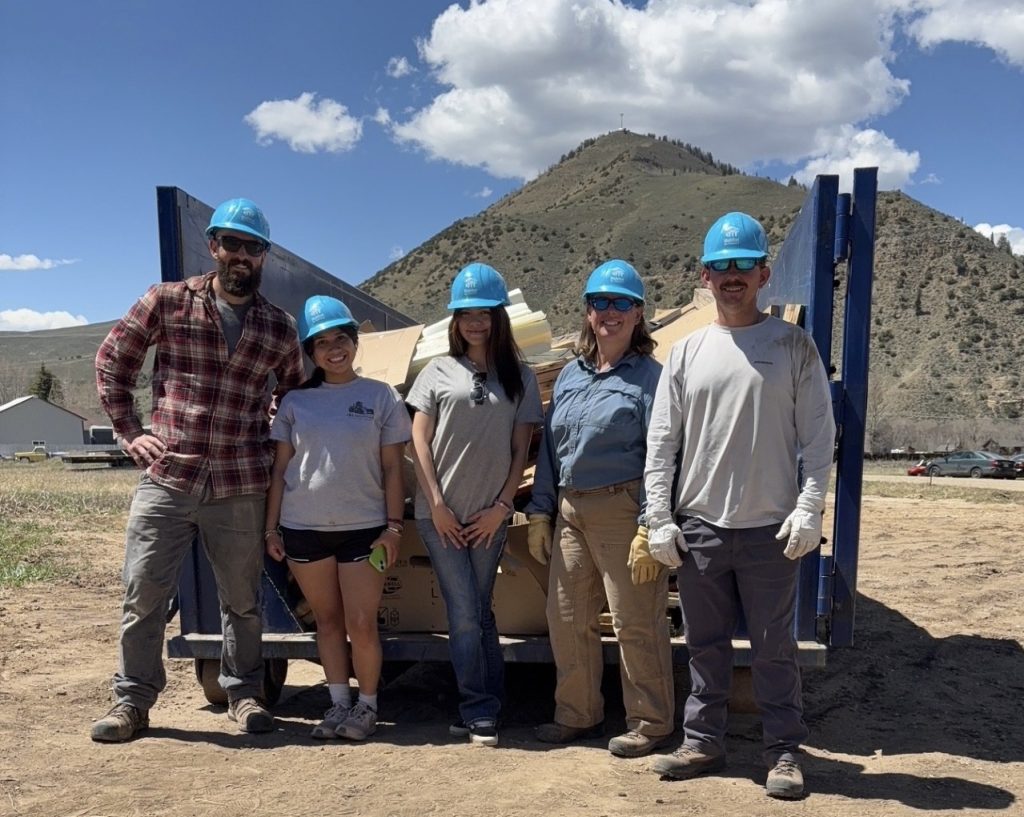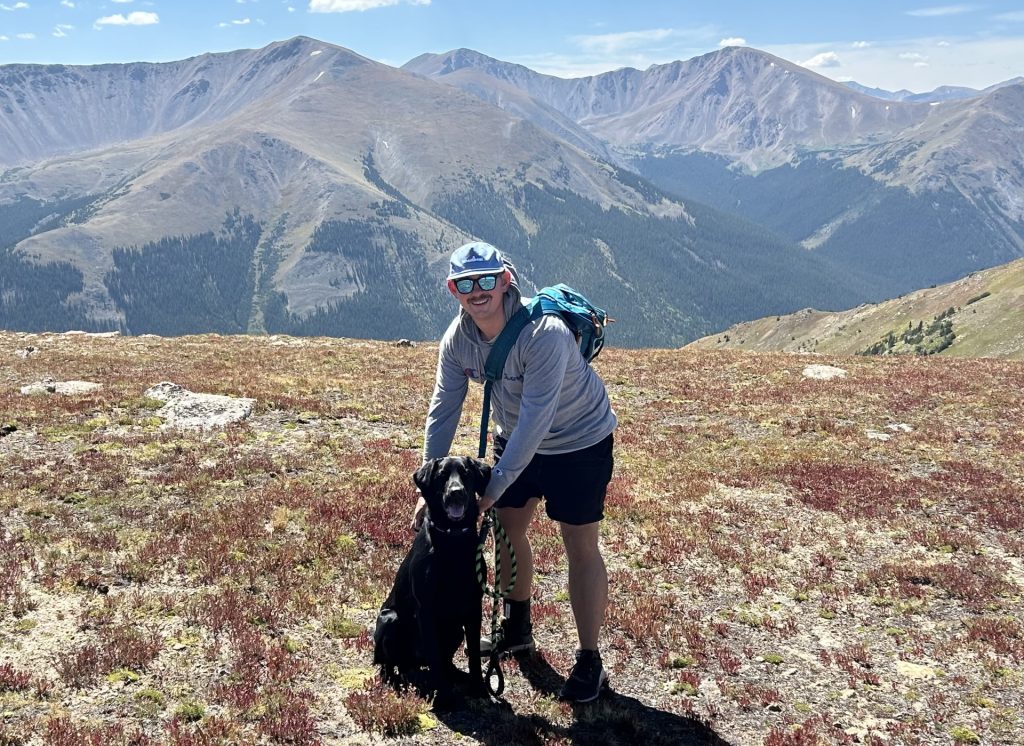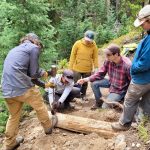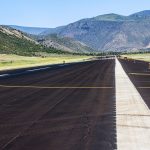Colorado housing nonprofits worried about potential loss of USDA loan program that has been a ‘miracle’ for rural homebuyers
The Trump administration’s 2026 budget request before Congress would eliminate funding for the USDA’s 502 direct loan program, which provides subsidized mortgage assistance for rural, first-time homebuyers

Habitat for Humanity Grand County/Courtesy photo
Day by day, nail by nail, Austin Reese is hammering away at what will soon be his new home in the high country.
Reese, who works for the Colorado State Forest Service’s Granby office, bought the home in Hot Sulphur Springs from Habitat for Humanity Grand County and is helping to build it as part of his volunteer hours, which the nonprofit requires for homebuyers.
He was able to afford it thanks to a powerful federal loan program for rural first-time homebuyers.
The United States Department of Agriculture’s 502 Direct Loan Program provides subsidized mortgage plans that eliminate the need for a down payment, among other benefits. The benefits are aimed at some of the lowest-income buyers, those making between 50% and 80% of their county’s area median income.
For Reese, who makes around $50,000 a year from his job with the Colorado Forest Service, qualifying for the loan was “essential” for his ability to purchase his Habitat home. With no down payment, he is projected to pay around $1,300 a month for his mortgage, which he said will help keep his housing costs to less than 30% of his overall income.
“It’s been an absolute miracle,” Reese said.
But Reese may be among the loan program’s last recipients under a pending federal budget proposal.
As part of his pledge to cut spending and shrink the federal bureaucracy, President Donald Trump is proposing sweeping cuts to many programs and agencies next year. His administration’s fiscal year 2026 budget request before Congress includes a 22% reduction in non-military discretionary spending, and would eliminate 502 direct loans, something Trump had tried unsuccessfully to do during his first term.
In a May 2 letter to Congress’ Appropriations Committee, Russell Vought, Trump’s budget director, said last year’s federal budget was “laden with spending contrary to the needs of ordinary working Americans” that “tilted toward funding niche non-governmental organizations.” He added that the proposed spending cuts “leads to significant savings.”
A budget draft from USDA shows that some funding would be preserved for guaranteed loans for homeowners, wherein the federal government agrees to cover a third-party lender’s losses if the borrower can’t make payments. But the 502 program would no longer issue direct loans to homebuyers.
The Summit Daily News reached out to a USDA spokesperson with questions about the loan program’s future but received an automated reply saying that the spokesperson was unavailable due to the ongoing federal government shutdown.

In Colorado’s rural resort communities, where median home prices reach into the millions, housing advocates say eliminating that provision of the 502 program could decimate what limited opportunities there already are for attainable homeownership.
“We’re very concerned,” said Jason Schraub, chief external relations officer for Habitat for Humanity Roaring Fork Valley. “It’s completely make or break for accessibility for homeowners.”
Along with eliminating the need for a down payment, the 502 loan provides longer mortgage repayment plans and interest rates that are as low as 1%. The current average interest rate for a 30-year mortgage is around 6.3%.
“These are all things that keep a monthly payment way more reasonable than anything else that we see on the market,” Schraub.
He gave the example of a recent Habitat homebuyer who purchased a $366,000 unit in downtown Glenwood Springs. By using the 502 loan, they can keep their total monthly housing cost to around $1,350. He said if their mortgage had been market rate, they’d likely be spending about double that.
“It’s not something that nibbles around the edges,” he said. “It is the key tool for affordability.”
Losing the 502 loan could also present a challenge for Habitat’s ability to build new housing. Without a third-party lender, the nonprofit might instead have to self-fund, meaning it sells its own mortgages and collects those payments from homeowners.
With that money tied up in repayment plans, it means Habitat will have less capital to tap into for its building projects. That would further exacerbate the cost pressures already facing affordable housing developers in the mountains, which include pricier building materials and a limited labor pool.
“We won’t last if we have to self-fund,” said Lisa Cooper, executive director for Habitat for Humanity Grand County, who added she is “absolutely panicked” about the thought of the direct loan ending.
Cooper said that could have immediate impacts on Habitat’s ongoing project to bring roughly two dozen homes to a 2.6-acre site in Granby. She said the nonprofit would need to rely even more on fundraising and outside revenue sources to continue making its projects pencil.
“There’s this huge gap between what our homeowners can afford and what it actually costs us to build the house,” she said.
Colorado has, in recent years, invested record amounts of public funding into affordable housing, most notably with the passage of Proposition 123 in 2022, which creates a dedicated tax fund that provides grants and loans for housing projects. Habitat for Humanity Grand County received a $1.6 million grant from the fund for its Granby project.
“That certainly is a piece of the puzzle that will help us be able to be long-term sustainable,” Cooper said, “but that’s not the bulk of the cost to build a house, and the cost to build the house is getting higher and higher.”
For Reese, the Colorado Forest Service employee, not having the 502 loan may have left him stuck in a housing limbo.

It was just two years ago that Reese lived in a studio apartment in a converted hotel, his best option at the time for affordable shelter that was close enough to his job. Now, he’s planning out the rooms in his soon-to-be finished three-bedroom home, complete with a front porch and storage unit.
He hopes more residents in rural resort areas can have those opportunities. The 502 loan, he said, is an important part of that.
“Housing prices in these communities, the affordability of it, doesn’t look like it’s changing much at all, so this is definitely needed for communities such as these,” Reese said.
Aspen airport sees more delays, cancellations in wake of new wind-reporting policy
A change from instantaneous wind-speed reporting to average wind-speed reporting aligned with a higher rate of flight delays, diversions, and cancellations this summer at the Aspen/Pitkin County Airport.









